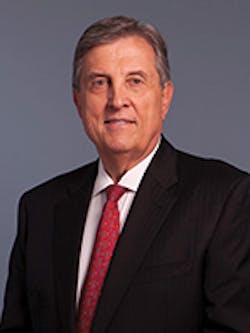BOD: Who has a seat at the table?
AS MY PARTNERS AND I at Preng & Associates complete our 35th year, we are reminded again of the extreme cyclicality of the oil and gas industry. My view is biased. I have spent my entire career in the oil and gas industry. My sons and daughter work in the oil and gas business. We know the challenges that executives and boards face every day to generate cash flow and net income to build their businesses.
Our clients are energy executives and boards. They repeatedly tell us their most important asset is people: employees, colleagues, peers, and partners. Their biggest challenge is not finding the next Marcellus or Wolfcamp or creating the newest completion technology that unlocks millions of barrels. It's finding and retaining the right people who are motivated and talented enough to make the organization better.
In the boardroom, our clients seek diverse views to get deeper consensus on critical issues facing executives as the complexity of the energy business increases. Executives running 21st century oil and gas companies instinctively know they need, and quite frankly want, more experience in the C-suite and the board room to make better decisions. They have embraced the idea that the long-term success and ultimately the highest value of the company will only be achieved through diversity of skills and thought and incorporating ideas of inclusion to arrive at the right decision. A balanced board brings different perspectives, backgrounds, skill sets and experiences - all of which should help the company make better decisions.
Assembling a well-balanced, high-performing board or management team with the desired skill sets is no easy task. That's one of the reasons I founded Preng & Associates in 1980. I wanted to help management and boards in the energy industry attract exceptional talent that would deliver long-term value to stakeholders.
Today it's not uncommon to see an energy board made up of diverse skills and experiences. Many have experienced petroleum scientists, skillful financial experts, and knowledgeable executives, most of whom have spent their entire careers in oil and gas. Proposals and actions made by the executive team can be checked-and-balanced by the board and vice versa. It's a symbiotic relationship, vital for an organization to be successful. But it hasn't always been this way.
Up until 2002, regardless of the industry, many companies took the friends-and-family approach when selecting directors. An effective director in the 1980s, 1990s, and early 2000s was a friend from college, a fellow member of the country club, a former industry colleague, or a member of church. Even athletes and celebrities made their way into the boardroom. I'm not saying these were incompetent people - many of these directors had successful businesses of their own and could provide guidance to the management team. As long as the CEO and the executive team had decent heads on their shoulders, corporations stayed afloat and often prospered.
The shortfall with the friends-and-family approach was that corporate governance procedures, day-to-day decisions, and even accounting practices did not always meet the highest standards. More importantly, the checks-and-balances process could break down. Some organizations made mistakes, missed strategic opportunities, and in some cases, intentionally or unintentionally broke the law.
Cue the corporate and accounting scandals - WorldCom, Enron, Tyco and others. These events cost investors on Wall Street and employee 401(k) retirement plans billions of dollars. This lack of confidence in corporate governance and accounting practices sent shock waves through the stock market. The US government believed stronger laws were needed, so in 2002 Sarbanes-Oxley (SOX) was passed, placing greater responsibility and legal liability on corporate boards.
SOX led the next evolution of the board. Companies now look for what we call the "professional director." Corporations need directors who know the rules and can assure they meet or exceed SOX requirements. Organizations have greatly improved director evaluations and have hired former public accounting partners, academicians, and retired law partners. In my opinion, the pendulum swung a little too far after SOX passed. Companies wanted experts that knew accounting standards and corporate governance criteria, but many lacked an in-depth understanding of the particular industry.
Enter the shale revolution. The use of horizontal drilling and hydraulic fracturing to produce quantities of hydrocarbons once thought impossible, pushed companies to make better, smarter and faster decisions to stay ahead of peers. Companies were forced to think differently about strategy and value creation and needed a board that could support this new way of thinking. Today, I believe the energy industry has found a happy medium. Boards now have experienced technical talent, skillful financial experts, knowledgeable industry executives - and even a few relevant "outside the industry" experts that provide unique perspectives to help the organization thrive.
Just as the demographics of the boards have changed over time, so has the role they are asked to play. Board members ensure transparency and bring sound financial discipline, but they are also being asked to identify opportunities in a rapidly changing energy environment.
In the past 10 years, the industry has moved from developing conventional resources to focusing more on unconventional targets. With management teams focused on day-to-day operations, boards are now providing higher-level insight. Going forward, companies that can develop and leverage the combined and diverse experiences of the board will more effectively and efficiently develop assets and outperform peers.
David Preng is founder and president of Preng & Associates.

